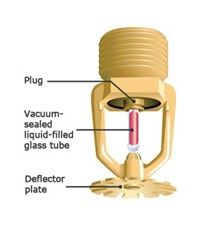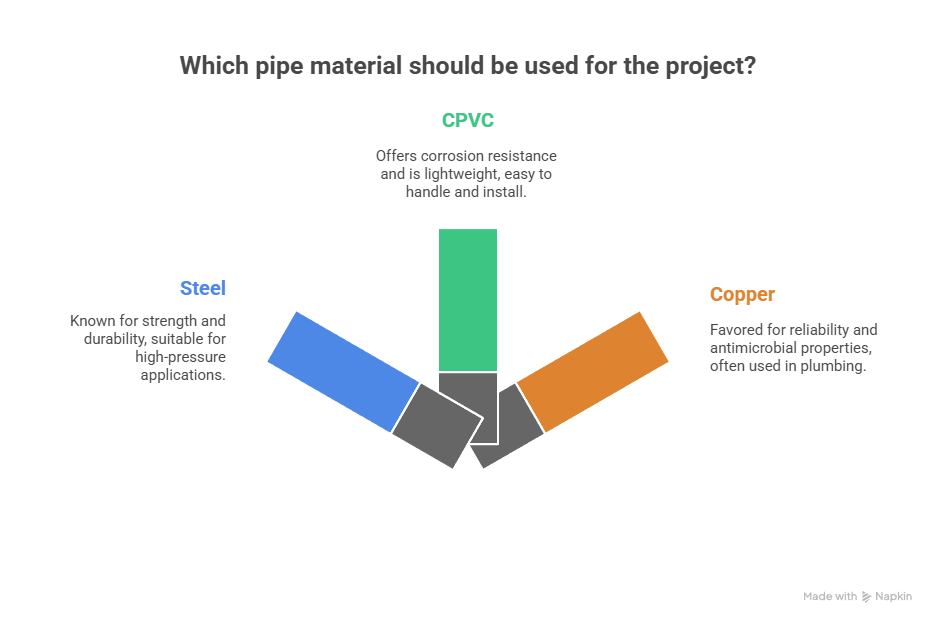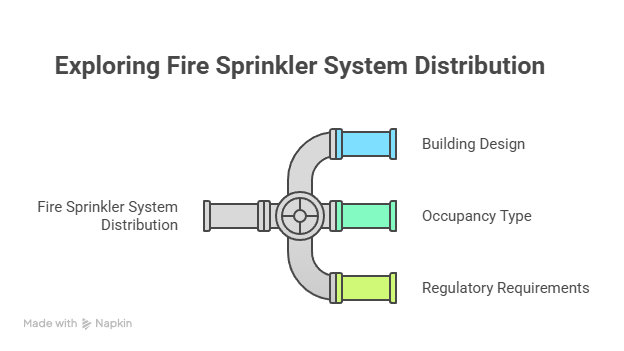Introduction
Fire protection systems save lives and property. At the heart of these systems are fire sprinkler pipes and fittings. These essential components ensure water flows reliably during emergencies. Choosing the right fittings improves safety, efficiency, and compliance.
At Fortis Forge, we specialize in high-quality fire sprinkler pipe fittings designed for maximum performance. In this blog, we explain everything you need to know about fire sprinkler pipes and fittings.
Why Fire Sprinkler Pipes and Fittings Matter
Fire sprinkler pipes carry water directly to sprinkler heads. Fittings connect these pipes and ensure smooth water distribution. If one component fails, the system’s performance is at risk.
Well-engineered fittings guarantee:
Strong leak-proof connections.
Smooth water flow without obstruction.
Long-term durability under pressure.
Compliance with international fire safety standards.

Types of Fire Sprinkler Pipes
Fire sprinkler pipes vary depending on material, application, and safety standards. Below are the main types:
1. Black Steel Pipes
Black steel is widely used in fire protection. It resists high pressure and has strong durability.
2. Galvanized Steel Pipes
These pipes are coated to prevent corrosion. They are suitable for humid or corrosive environments.
3. CPVC Pipes
Chlorinated Polyvinyl Chloride (CPVC) is lightweight, easy to install, and resistant to corrosion.
4. Copper Pipes
Copper pipes are highly durable and resist corrosion. They are used in specialized systems.
Types of Fire Sprinkler Fittings
Pipes need fittings to form a complete system. Let’s explore the most common fire sprinkler fittings.
1. Elbows
Elbows change the direction of water flow. They are available in 45° and 90° types.
2. Tees
Tees split the water flow into different branches. They are essential in large buildings.
3. Couplings
Couplings join two pipes together. They ensure tight and leak-proof joints.
4. Reducers
Reducers adjust pipe diameter when connecting different sizes.
5. Flanges
Flanges allow easy assembly and disassembly of pipes. They are useful in maintenance.
6. Caps and Plugs
Caps and plugs close unused pipe ends, preventing leaks.

Key Features of Fire Sprinkler Fittings by Fortis Forge
At Fortis Forge, we manufacture fittings with precision. Our fittings are tested under strict standards. Some key features include:
High-grade raw materials for durability.
Corrosion-resistant coating for long life.
Precision design for perfect fit.
Easy installation to save labor time.
Cost-effective without compromising quality.
Installation Process of Fire Sprinkler Pipes and Fittings
Installing sprinkler pipes and fittings requires expertise. The process follows strict safety codes.
Planning the Layout – Engineers design pipe routes based on building structure.
Pipe Cutting – Pipes are cut into required lengths.
Fitting Assembly – Elbows, tees, and couplings are used to connect pipes.
Joining – Welding, threading, or grooved connections ensure secure joints.
Testing – Water pressure testing checks for leaks or weaknesses.
Standards and Compliance
Fire sprinkler pipes and fittings must meet international safety standards. Some key certifications include:
UL (Underwriters Laboratories) approval.
FM (Factory Mutual) approval.
Compliance with NFPA (National Fire Protection Association) codes.
Using certified fittings ensures safety and legal compliance.
Benefits of Using Quality Fire Sprinkler Pipes and Fittings
Investing in high-quality fittings offers long-term benefits:
Safety Assurance – Reliable performance during fire emergencies.
Durability – Resistance against corrosion and leaks.
Cost Savings – Less maintenance and replacement required.
Compliance – Meets fire safety regulations.
Efficiency – Smooth water flow for quick fire suppression.
Challenges in Fire Sprinkler Systems
Despite their importance, fire sprinkler systems face challenges.
Corrosion – Leads to leaks and reduced efficiency.
Improper Installation – Can cause weak joints or blockages.
Low-Quality Materials – Risk of failure during emergencies.
Pressure Issues – Inadequate flow due to wrong pipe sizing.
Solutions by Fortis Forge
At Fortis Forge, we address these challenges with advanced manufacturing.
Anti-corrosion coatings for longer pipe life.
Skilled engineering for precise fittings.
Rigid quality checks before delivery.
Customized solutions based on project needs

Maintenance of Fire Sprinkler Pipes and Fittings
Maintenance ensures reliability of the fire sprinkler system. Steps include:
Regular Inspection – Check for leaks, corrosion, or blockages.
Pressure Testing – Confirm water flow capacity.
Cleaning – Remove debris or rust buildup.
Replacement – Change worn-out fittings immediately.
Applications of Fire Sprinkler Pipes and Fittings
Sprinkler systems are used in many sectors:
Commercial Buildings – Offices, malls, and hotels.
Industrial Plants – Factories and warehouses.
Residential Spaces – High-rise apartments and complexes.
Healthcare Facilities – Hospitals and clinics.

Conclusion
Fire sprinkler pipes and fittings are the backbone of fire safety systems. Choosing high-quality components ensures durability, safety, and compliance. At Fortis Forge, we deliver reliable fittings designed to protect lives and property.
Invest in trusted fire sprinkler fittings today and strengthen your fire protection system.
